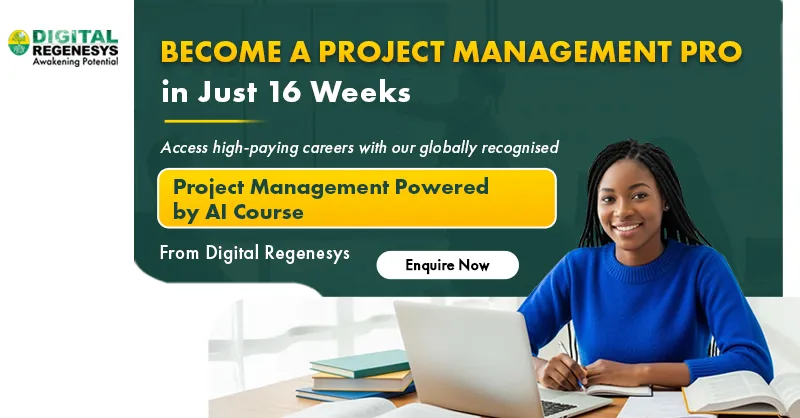Top Project Coordinator Interview Q&A

If you are preparing for a Project Coordinator interview, it is essential to have a strong understanding of both basic and advanced aspects of the role. Knowing the right questions and how to answer them can significantly improve your chances of success.
This article covers top project coordinator interview Q&A to help you prepare confidently for interviews. These questions cover a wide range of topics.
By familiarising yourself with these, you can build confidence, improve your communication skills, and clearly demonstrate your expertise during the interview process. These questions will help you articulate your knowledge, showcase your ability to manage projects efficiently, and highlight your readiness to handle the dynamic challenges of the role.
This comprehensive set of top project coordinator interview Q&A will ensure you are well-prepared to impress potential employers and move closer to securing your desired position as a Project Coordinator.
Project Coordinator Interview Questions with Answers
Practising these Q&As will help you identify any knowledge gaps and address them beforehand. These questions will not only boost your interview performance but also provide you with valuable insights and skills that will be beneficial throughout your career in project management.

Check these 15 project coordinator interview questions here.
1. What does a Project Coordinator do?
A Project Coordinator supports project managers by handling schedules, documentation, communication, and task tracking. The role ensures projects stay organised and on time. In South Africa, coordinators often work across multiple stakeholders and departments. Strong coordination helps reduce delays and improve project delivery outcomes.
2. What skills are essential for a Project Coordinator?
Key skills include organisation, communication, time management, and problem-solving. Technical familiarity with project management tools is also important. In the South African job market, employers value adaptability and teamwork. Strong reporting and documentation skills are especially useful in regulated industries.
As we learned, skills matter more than a degree. You can read more about Why Companies Value Certified Project Managers
3. How do you manage multiple tasks and deadlines?
I prioritise tasks based on urgency and project impact. I use task lists, project tools, and clear timelines to stay organised. Regular check-ins help me track progress and address issues early. This structured approach reduces last-minute pressure and missed deadlines.
4. How do you handle communication between stakeholders?
Clear and consistent communication is essential. I ensure stakeholders receive timely updates through meetings, emails, or dashboards. I adapt my communication style based on the audience. This helps avoid misunderstandings and keeps everyone aligned with project goals.
5. Describe a time you handled a project delay.
In a previous role, a task was delayed due to vendor issues. I informed the project manager immediately and proposed a revised timeline. We redistributed tasks to minimise impact. This proactive approach helped the project recover without major disruption.
6. How do you support a Project Manager?
I assist with scheduling, reporting, documentation, and coordination. I track action items and follow up with team members. By handling operational details, I allow the project manager to focus on strategy and decision-making. This improves overall project efficiency.
7. What project management tools are you familiar with?
I have experience with tools such as Trello, Asana, Microsoft Project, and Excel. These tools help track tasks, deadlines, and progress. In South Africa, many organisations value familiarity with digital tools. Tool knowledge improves collaboration and reporting accuracy.
8. How do you handle conflict within a project team? (Situational)
I listen to all parties involved and understand the root cause of the conflict. I encourage open communication and focus on solutions rather than blame. If needed, I will professionally escalate the issue. This approach maintains team harmony and project momentum.
Here you can understand in detail why Certified Project Management Online Short Courses Matter?
9. How do you ensure project documentation is accurate?
I follow standard templates and update documents regularly. I review information for accuracy before sharing it. Version control is important to avoid confusion. Well-maintained documentation supports audits, reporting, and future project reference.
10. Why do you want to work as a Project Coordinator in South Africa?
South Africa’s growing infrastructure, IT, and business sectors offer strong project opportunities. The role allows me to contribute to structured project delivery. I value working in diverse teams and dynamic environments. The position aligns with long-term career growth in project management.
11. How do you handle tight deadlines and pressure?
I stay calm and focus on prioritisation. Breaking tasks into smaller steps helps manage pressure. I communicate risks early and seek support when needed. This approach ensures quality work even under time constraints.
12. What industries hire Project Coordinators in South Africa?
Project Coordinators are hired across IT, construction, finance, healthcare, and telecommunications. Government and consulting firms also create strong demand. Digital transformation projects are increasing opportunities. This makes the role versatile and stable in the local job market.
To learn more about the role of a Project Manager, you can read this – An Overview of What Does a Project Manager Do?
13. How do you track project progress?
I use timelines, task boards, and regular status updates. Monitoring milestones helps identify delays early. I share progress reports with stakeholders. Consistent tracking ensures transparency and accountability throughout the project lifecycle.
14. How do you handle changes in project scope?
I document the requested change and assess its impact on timelines and resources. I communicate this clearly to the project manager and stakeholders. Proper change control prevents confusion. This helps maintain project structure and expectations.
15. What are your career goals as a Project Coordinator?
I aim to grow into a Project Manager role over time. Gaining experience across projects helps build leadership skills. In South Africa, certifications and AI-pow

Job Market Insights for AI and Project Management Roles in South Africa
South Africa’s job market is evolving as AI-driven projects become central to business strategy. Organisations now need professionals who can combine technical understanding with structured project execution.
This shift is reflected globally, where demand for project-led roles continues to rise. By 2027, employers will need nearly 88 million individuals in project management-oriented roles. Locally, this demand is visible across banking, telecoms, healthcare, and enterprise technology sectors.
Key job market trends in South Africa include:
- Rising demand for AI-enabled project managers and transformation specialists
- Strong hiring across finance, IT services, and digital consulting firms
- Increased value placed on professionals who can manage AI-driven initiatives
- Growth in hybrid and remote roles linked to global project teams
- Long-term career stability as AI adoption accelerates across industries
Here is your detailed Guide to Short Project Management Courses Online
Enrol in Digital Regenesys’ AI-Powered Project Management Course
Building a successful project management career today requires more than traditional methods. You need AI-driven skills, practical tools, and global exposure. Digital Regenesys’ AI-Powered Project Management Course is designed to help professionals manage modern, data-driven projects with confidence.
The course blends AI insights with real-world project management practices, ensuring you are ready for evolving business demands across industries.
Here’s what makes this course industry-ready:
- Globally Recognised Certificate that adds strong value to your professional profile
- 5 essential project management tools covered with hands-on application
- Industry-ready curriculum aligned with current AI and business trends
- World-renowned faculty bringing global expertise and practical insights
- Flexible live classes designed to fit around working professionals’ schedules
Last Updated: 27 January 2026
